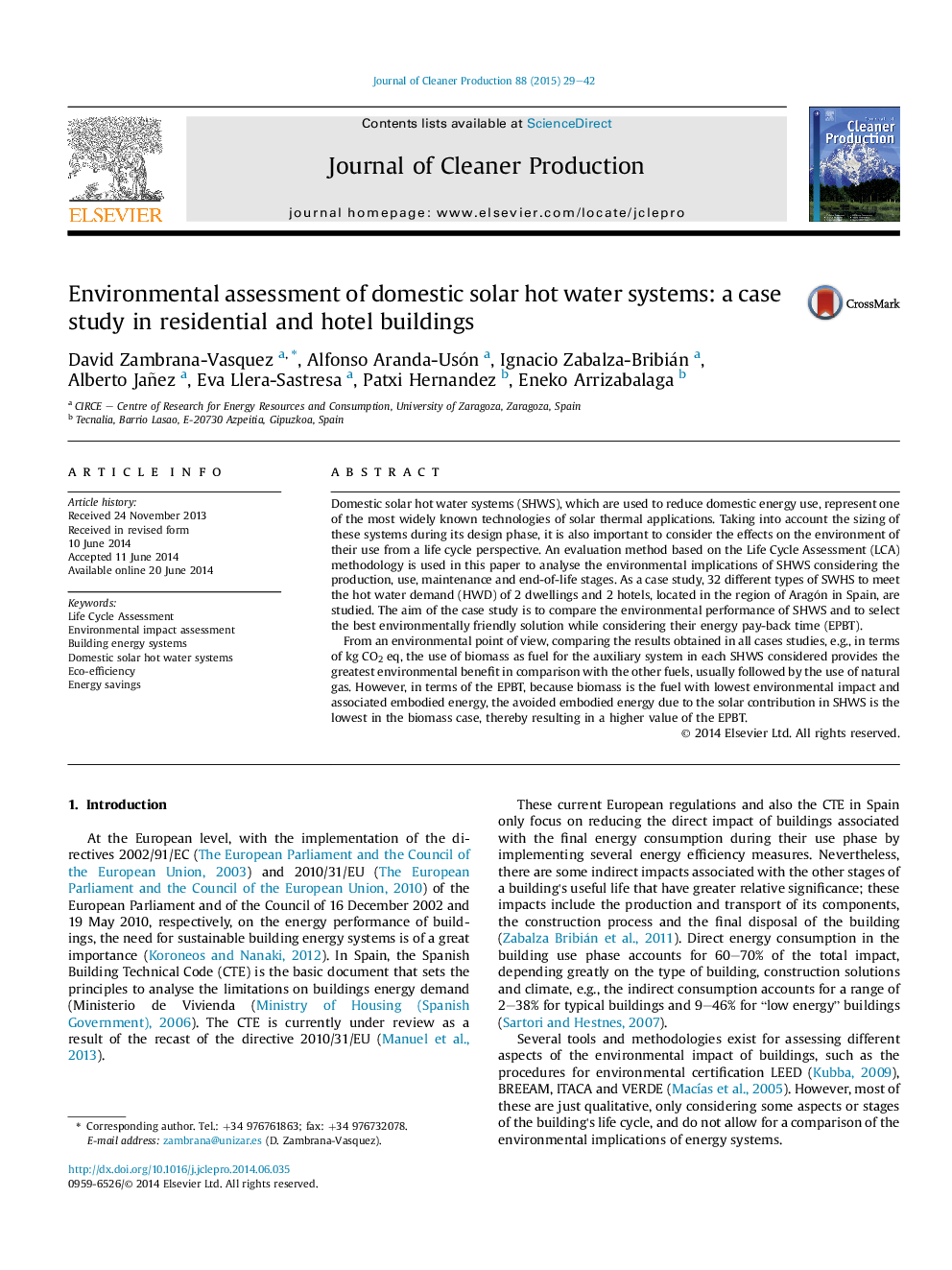| کد مقاله | کد نشریه | سال انتشار | مقاله انگلیسی | نسخه تمام متن |
|---|---|---|---|---|
| 1744753 | 1522158 | 2015 | 14 صفحه PDF | دانلود رایگان |
• A comprehensive methodology based on Life Cycle Assessment (LCA) is developed.
• Environmental impacts for 32 types of solar water heating systems (SWHS) are calculated.
• Use of biomass as auxiliary heating has the lowest life cycle environmental impact.
• Using SWHS to replace biomass the worst results in terms of avoided emissions and energy payback.
Domestic solar hot water systems (SHWS), which are used to reduce domestic energy use, represent one of the most widely known technologies of solar thermal applications. Taking into account the sizing of these systems during its design phase, it is also important to consider the effects on the environment of their use from a life cycle perspective. An evaluation method based on the Life Cycle Assessment (LCA) methodology is used in this paper to analyse the environmental implications of SHWS considering the production, use, maintenance and end-of-life stages. As a case study, 32 different types of SWHS to meet the hot water demand (HWD) of 2 dwellings and 2 hotels, located in the region of Aragón in Spain, are studied. The aim of the case study is to compare the environmental performance of SHWS and to select the best environmentally friendly solution while considering their energy pay-back time (EPBT).From an environmental point of view, comparing the results obtained in all cases studies, e.g., in terms of kg CO2 eq, the use of biomass as fuel for the auxiliary system in each SHWS considered provides the greatest environmental benefit in comparison with the other fuels, usually followed by the use of natural gas. However, in terms of the EPBT, because biomass is the fuel with lowest environmental impact and associated embodied energy, the avoided embodied energy due to the solar contribution in SHWS is the lowest in the biomass case, thereby resulting in a higher value of the EPBT.
Journal: Journal of Cleaner Production - Volume 88, 1 February 2015, Pages 29–42
